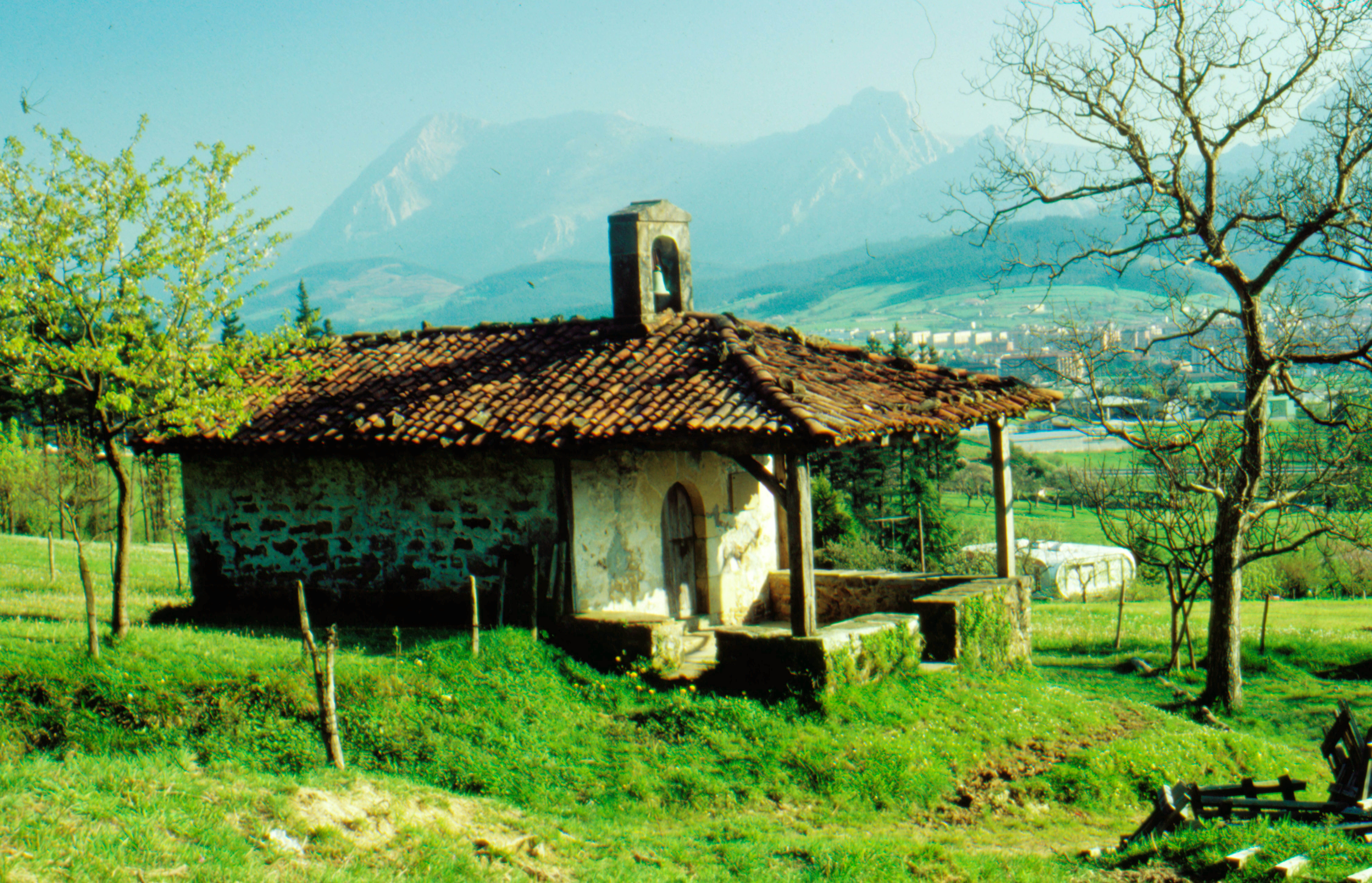While in Greek mythology Prometheus managed to steal fire back from the gods and give it to humankind, the Basque mythological character Samartintxiki thieved wheat seed from the jentil and became the very first to farm the land. Saint Martin (316-397), bishop of Tours, acquires a special role in Basque mythology, its diminutive Samartintxiki —literally, “little Saint Martin”, and affectionately translated into Spanish as “san Martinico” by Barandiaran— being him who not only seized wheat, maize or turnip seed from Basajaun —or Basajaunak, its plural form— and even the Devil himself, but also found out the exact time to sow it.
He was the first farmer to get hold of the main cereal seeds and the first faber or labourer specialised in different trades —the Basque term (h)arotz is used to mean both “joiner”, in the western part of the country, “blacksmith”, in the easternmost region, or “foundry worker”, as is the case in the compound noun gabiarotz—, such as the manufacture of saws and various iron handling skills.
Samartintxiki plays the role of a hero in Basque mythology. By means of intelligence and courage he is able to visit the wild people of the woods or Basajaun and steal their cereal weed and the secret, known only to them, about its sowing time. As well as in the referred mythological accounts, the figure of Samartin appears in a cumulative song titled Samartinen kanta [Samartin’s song] or Samartinen amabi egiak [Samartin’s twelve truths], some variants of which are preceded by a narration.
Our hero is scarcely mentioned in the Basque mythological documentation written in Basque and gathered by Cercand and Webster in the 19th century. However, numerous stories about him are recorded and discussed among the evidence brought together by Barandiaran, Azkue or Satrustegi in the 20th century. Besides, he is the leading character of more than a tale collected in the foothills of Gorbeia Mountain towards the end of the 20th century in the 1980s. J. M. Etxebarria in his book Gorbeia inguruko etno-ipuin eta esaundak [Ethno-tales and sayings from Gorbeia and environs] includes several: Jentilak eta ereitzea [The Jentilak and the sowing]; Jentilak, Samartin eta artoa [The Jentilak, Samartin and the maize]; y Jentilak, Samartin eta kaldea [Jentilak, Samartin and the heat of the foundry].

St Martin of Amatza in Iurreta (Bizkaia). José Ignacio García Muñoz. Labayru Fundazioa Photographic Archive.
In order to illustrate the type of mythological narratives about Samartintxiki, we reproduce here into English the following taken from Diccionario ilustrado de mitología vasca by Barandiaran:
It is said in Ataun (Gipuzkoa) Samartintxiki went to Muskia Mount, located in the aforementioned municipality, to visit the Baxajaun, a cut above humans who harvested large amounts of wheat on such heights. He made a bet with them and intentionally fell into a pile of wheat so that his wide sandals filled with grain. As he headed for the valley, the Baxajaun realised Samartintxiki was carrying the precious cereal seed in his shoes. One of them threw an axe at him yet failed to hit the target. Soon after our man heard the Baxajaun sing: “Or irtete, arto ereitte; or erorte, gari ereitte; Sanlorentzôta, arbi ereitte” (When the leaf sprouts, sow maize; when the leaf falls, sow wheat; on the Feast of St. Lawrence, sow turnip). Other versions of the legend exist in Kortezubi, Mutriku, Zegama, Oiartzun, etc.
More than that, the secret formula of the Basajaun about the sowing time for wheat has survived as an old saying. In the collection of proverbs the Carmelite Jesús M.ª Araquistain sent Manuel de Larramendi, we read Or erorte, galercite, an error in the transcription, which should instead say Or erorte, galereite (When the leaf falls, sow wheat). The saying recovered by Araquistain in the 18th century was most probably accompanied by a short story with Samartintxiki as its protagonist.
Jabier Kalzakorta – Full member of the Academy of the Basque Language and professor at the University of Deusto
Translated by Jaione Bilbao – Language Department – Labayru Fundazioa